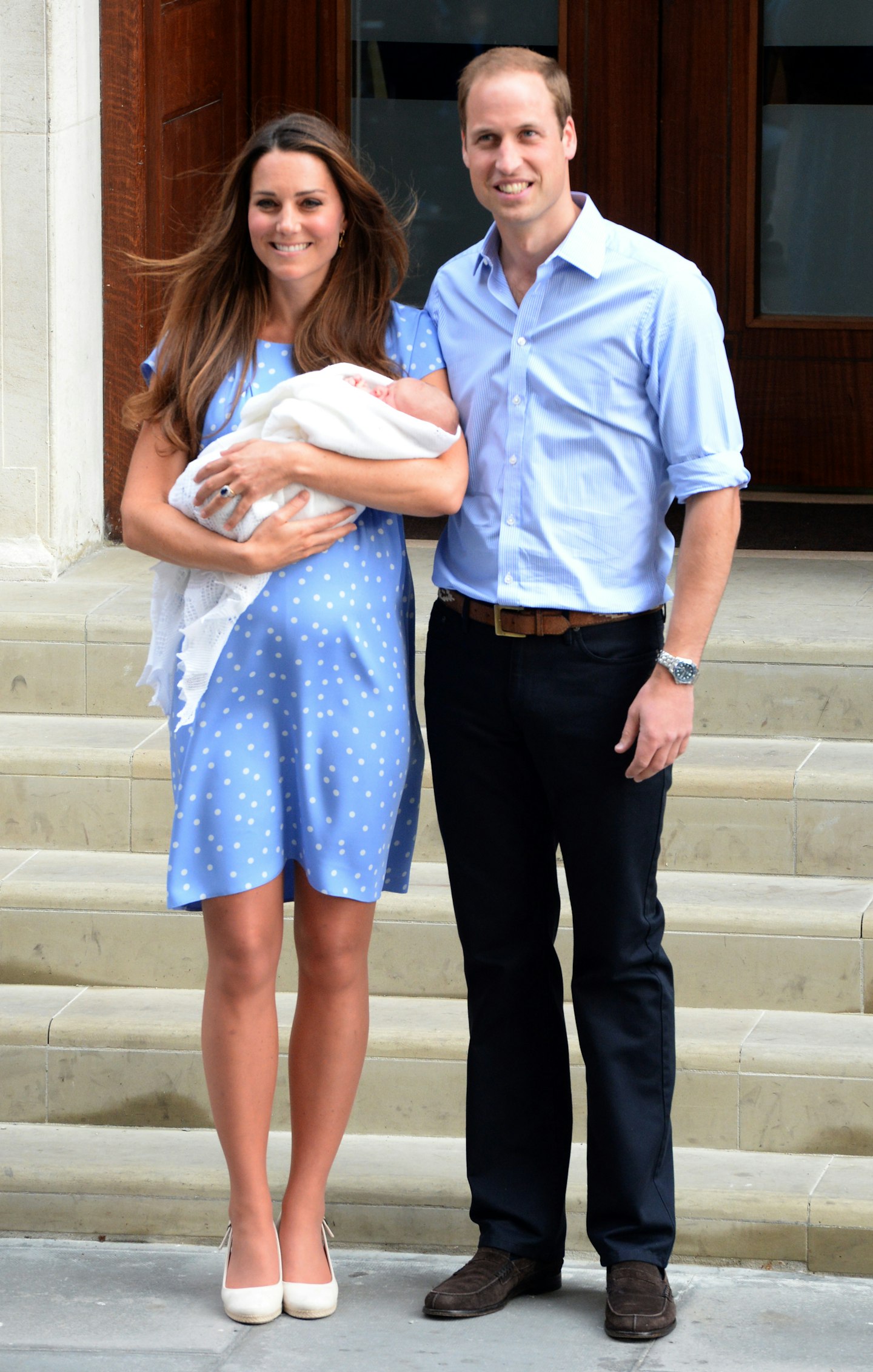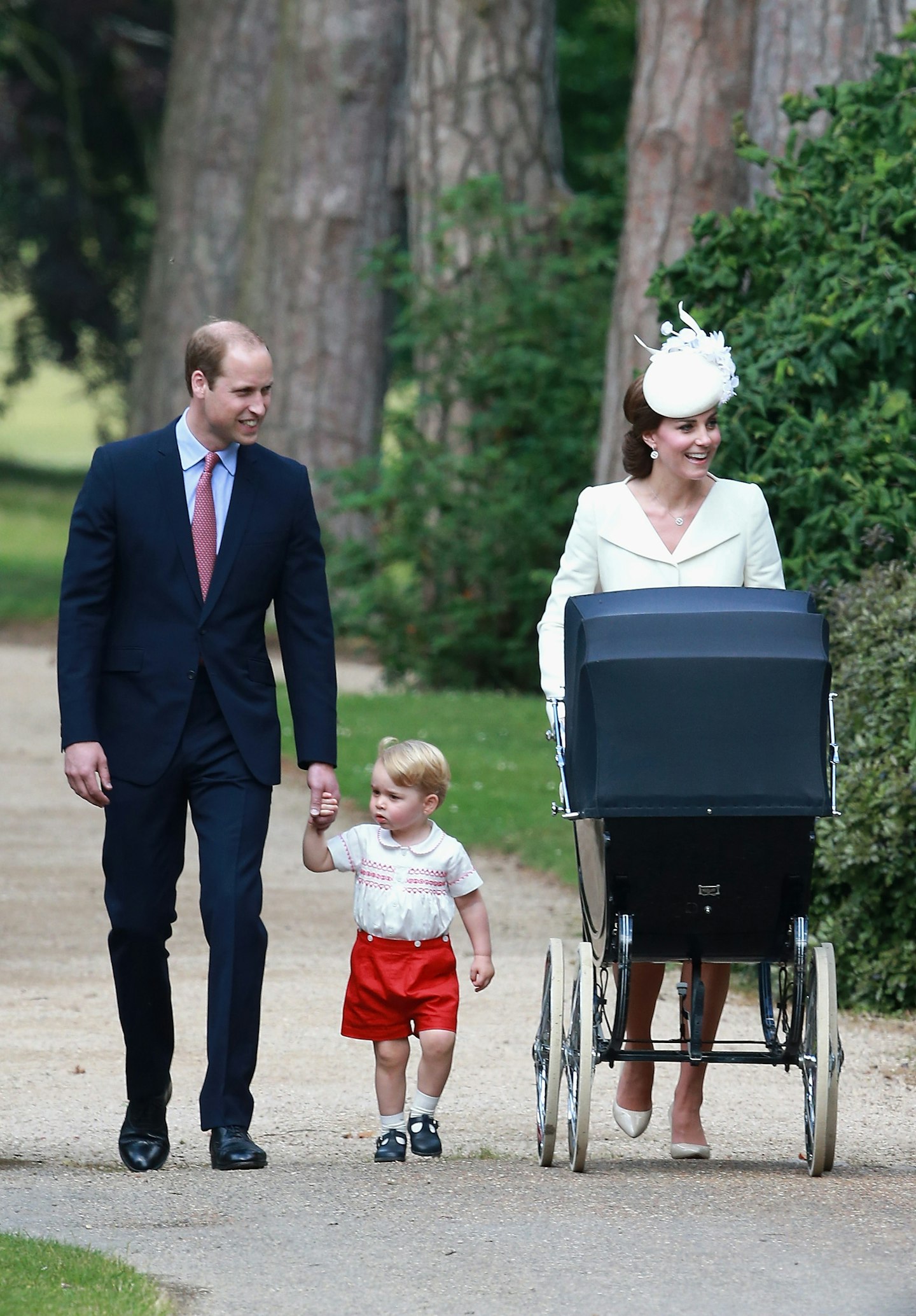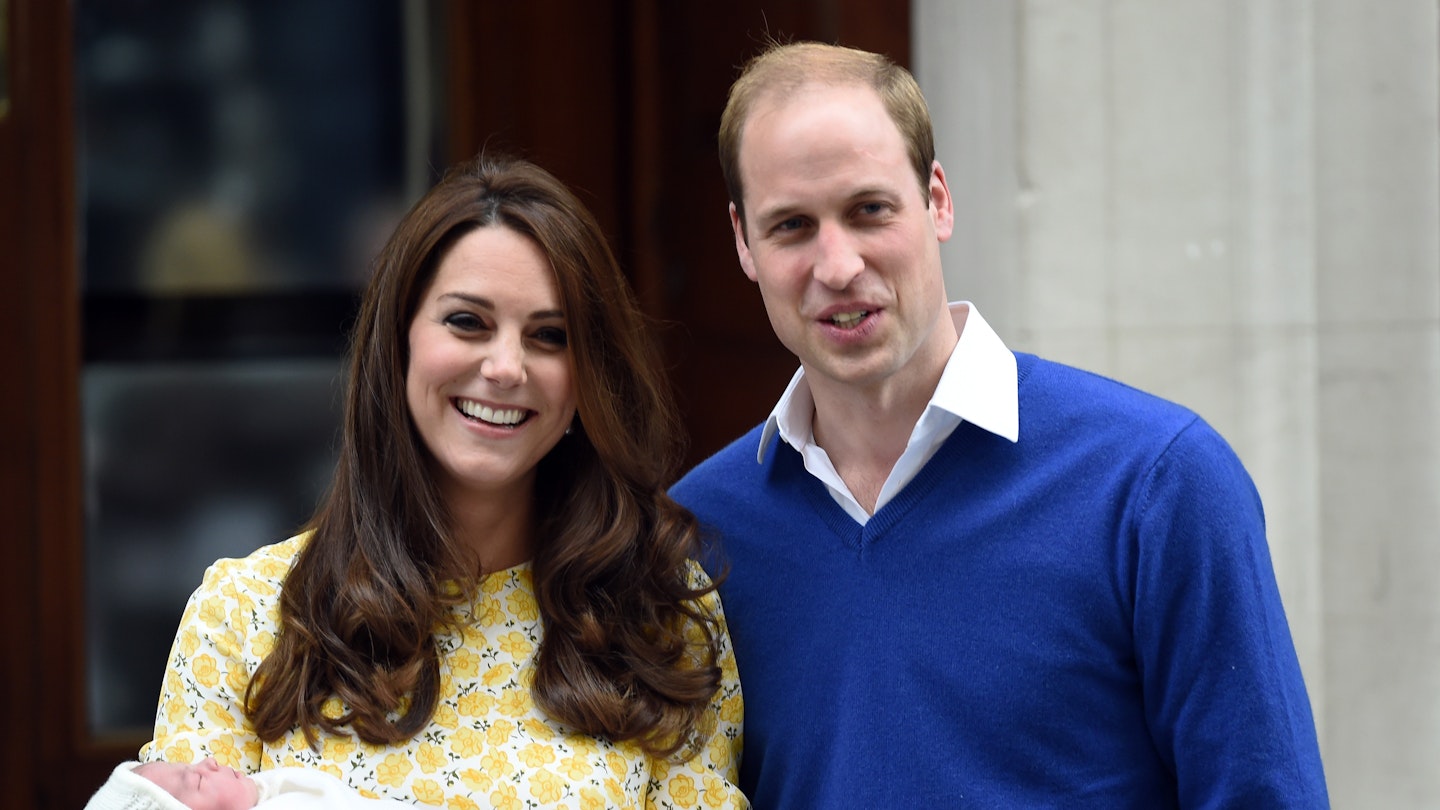Where were you when the royal baby news broke? Yes, that’s an entirely ridiculous question. Upon reading the alert from Kensington Palace, though, I can’t have been the only one to – embarrassingly full disclosure ahead – fire off texts to friends, send a few gushing tweets and devote more time than strictly necessary to pondering an appropriately regal name for the forthcoming sixth in line to the throne (the clever money is on Alice, apparently). I know I wasn’t been the only one, seeing as I was on the receiving end of a wave of similar messages too. All of this for Kate Middleton and Prince William, a couple that the majority of us have never met and a baby who – in all likelihood – we’ll never meet. So why are we all suddenly feeling so over-invested in celebrity offspring? Or, to paraphrase Regina George, 'why are we so obsessed with them?'
2017 has been – among other, less pleasant things – a year of celebrity baby announcements, from the traditional (Kate and William’s message might have been tweeted from the official Palace account, but the wording was such that it could’ve been issued any time in the last 50 years) to the Internet-breaking (you could happily devote an undergrad dissertation to the artistic allusions in Beyoncé’s carefully crafted bump reveal). Even if you’re a dedicated republican, you might still have experienced a similar wave of refracted excitement on behalf of another favourite famous couple. Pregnancy is a natural biological process that many of us – title and wealth aside – will have experienced, or will go on to, so why does news like this have the power to captivate on such a wide scale?

Interest in high profile pregnancies is hardly a new phenomenon. In the case of the royals, these announcements have long carried the weight of the country’s expectation - that of continuing the bloodline and producing an heir: while pregnant with Prince William, Princess Diana reportedly complained to friends that ‘the whole world is watching my stomach.’ According to Anjula Mutanda, a social scientist and relationship psychologist, ‘as evolutionary psychologists point out, we have always been interested in and admired those who achieve great success or have high status. What has really changed in recent times, however, is our access to information and insights about celebrities, making it so much easier for people to become more emotionally invested in their lives.’
That ease of access is in no small part thanks to social media. Where the royal family and the starriest of A-listers would once cultivate an air of mystique, these days the PR strategy is different: relatability is key. Though Instagram insights into celebrity lives are often the work of an army of digital branding experts, if done well they can appear honest, open, authentic. ‘What social media has done is give great access and immediacy to celebrity gossip, and it can feel like a two-way relationship,’ says Anjula. ‘This access gives the appearance of [the celebrities] inviting people into their lives during this special time. This can have the effect of “virtual befriending,” where [non-celebrities] can in turn comment or “like,” making the connection feel more powerful and real, even though it is a one sided one.’
WATCH NOW: Princess Charlotte's Sweetest Moments
Away from the Instagram feed, it’s also a simple question of empathy. ‘Pregnancy can be seen as the great equalizer,’ says Anjula. ‘People may not have their money, celebrity status or lifestyle, but they will know someone who has had a baby or have done through pregnancy themselves. It becomes a type of shared experience – one where you can feel “like” the celebrity or feel empathy for them having a challenging experience.’ Michelle Kennedy, the founder of Peanut, an app which helps mothers to connect with each other, agrees. ‘It normalises the celebrity. It’s reassuring to know that they’re “real,” that they have the same issues, worries, concerns as we do,’ she says. ‘When you feel like you’re the only person in the world experiencing something, to see someone in the public eye going through it, it brings them into your world.’
In other words, there is a positive upshot to our ongoing fascination with high profile pregnancies. For too long, we’ve lacked open and honest conversations around female reproductive health: women are often made to feel like concerns over anything from menstruation to fertility issues to post-partum mental health are over-exaggerated, invalid and somehow tied up with that old Victorian friend, hysteria. When a celebrity draws attention to a pregnancy-related condition or, say, speaks openly about surrogacy likeKim Kardashian West, ‘they are using their platform to highlight real issues, and that’s always a good thing,’ Michelle continues. ‘It goes a huge way to normalise issues that perhaps have been under the radar or seemingly unusual, less common.’

That gossipy buzz of news can, then, be transformed into something more significant, but it’s important to remember that the same buzz can be translated in other ways, too. Some news outlets still see a celebrity pregnancy as an opportunity to reduce that woman’s body to public property. ‘Where it becomes reductive and potentially damaging,’ says Anjula, ‘is when a woman is put under the microscope of critical judgement about her looks, her weight, her changing body. It’s the objectification of a natural process.’
While it’s only natural to see baby news as a reason for celebration, let’s not forget that it’s by no means the only reason we should celebrate other women. As Michelle puts it, ‘in a larger context, motherhood is a chapter in their life, a chapter of many women’s lives. But it’s not the only chapter. Too see women accomplishing amazing achievements – Serena Williams winning the Australian open six weeks pregnant, Larissa Waters breastfeeding in the Australian parliament – is not reductive; that’s just highlighting the strength of womankind.’
Anjula Mutanda will be one of the contributors at the Episode 3 Friendship of The Davina Hour show on September 18th. The Davina Hour is on Mondays at 9pm on W. Peanut is an app which helps connect mums with other nearby mums; find out more at www.peanut-app.io
READ MORE: Let's Start Busting The Myths Around Pregnancy Sex
